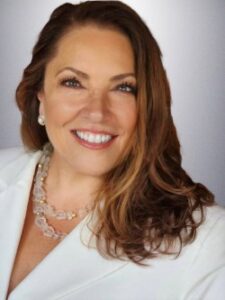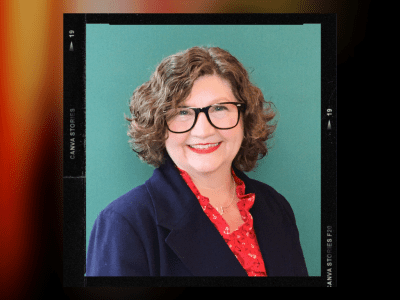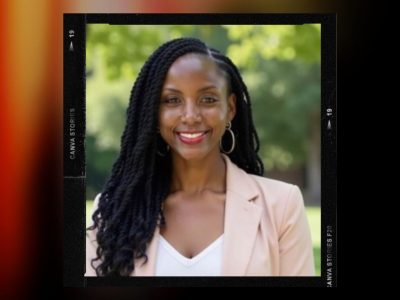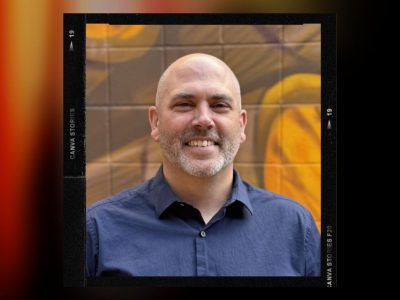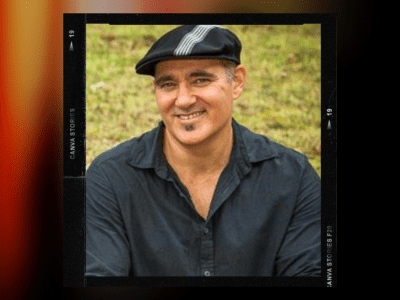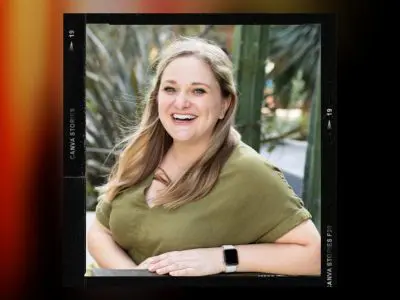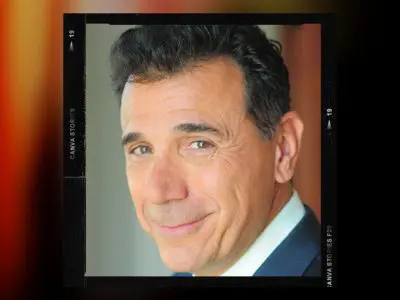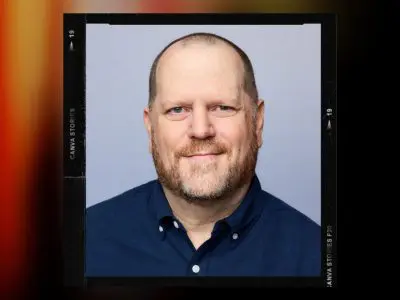Diversity, Equity, and Inclusion in the Workplace
w/ Melanie Miller
Use the buttons above to listen now.
Transcript - Diversity, Equity, and Inclusion in the Workplace
Rich, Host: On this episode of Team Building Saves the World.
Guest, Melanie Miller: You know what, if you connect with people on a human level, where they are and, you know, explain some of this, it really does work. How do I know how to make my team bond more effectively? Is that really kind of need to ask them? My sessions are very high energy. They’re very interactive.
Rich, Host: And from you, I can’t imagine that now.
Guest, Melanie Miller: Hey, we’re going to have this class today because. You lost this lawsuit. Yay.
Rich, Host: Hello team. It’s me, your old friend, Rich Rininsland, host of Team Building Saves the World. The show where I speak to thought leaders from around the world, discussing variable strategies and tools to help you and your team build a better work environment. And today we’re discussing a very important topic in today’s world, DEI & B or Diversity, Equity, Inclusion, and Belonging with my guest facilitator, consultant, and the founder of the Melanie Miller and Associates LLC, Melanie Miller. But first, I have to share some love with my supporters at team bonding.
If your team is ready to experience teamwork, the power of play, visit TeamBonding.com to learn more. Now team, please join me in welcoming my guest, a woman with over 27 years of experience in management, training, and consulting. With a focus in D E I & B Melanie Miller. Melanie, welcome my friend. How are you?
Guest, Melanie Miller: Thank you. Thank you. Fantastic. I love your team.
Rich, Host: Oh, thank you. And from all of them,
Guest, Melanie Miller: They’re always so energetic. I love that.
Rich, Host: They really are. That you’d never know that I keep them trapped under my desk just to applaud you. But now you let’s start out like I do with everybody.
If we can, please just explain to my team out there a little bit about yourself, who you are, how you got into the facilitation and management training and why a focus in DEI.
Guest, Melanie Miller: Yeah. Awesome. Thank you so much. Thank you, Rich, for having me. Thanks to everyone. So I come out of corporate America. I used to work in a marketing advertising capacity years ago.
I usually just say 20 ish years, mostly because I don’t like the last number hurts my stomach. So that’s where I landed. I was working for an ad agency, and seeing one of the two partners stuck his head in my office one Friday and said, Hey, when you go home today, take home all your personal items because there’s gonna be a padlock on the door on Monday.
And then he left. And I thought What does that even mean? So, uh, long story short, they filed bankruptcy. Uh, I found out a little bit later, they were bankrupt because we were billing our clients, they were paying, and the two owners were taking the money that they paid with. So that was kind of a bummer. And I sat home watching the young and the restless and eating a lot of chips and dip because I could not get my head around like, who does that?
Who? Purposefully intentionally does that to their employees and their families. So a buddy of mine called one day and said, do you have a job? And I said, no, but I need one. I can’t do this indefinitely. And, uh, that is how I got into, at the time it was just called diversity. He said, a friend of mine has a diversity consulting company.
You should call them. And I said, that’s great. I don’t know anything about consulting and the whole idea of stocks and bonds, diversification of numbers. I’m really bad with numbers. And he said, and ain’t that kind of diversity. So I did. And here I am 20 ish years later.
Rich, Host: Beautiful. So talking about DEI diversity, equity inclusion, I’ve talked about it many times with many different guests.
I don’t think a season has gone by in the five years I’ve been doing this now, where we didn’t have something to talk about in DEI. But now we have DEI and B. First off, let’s just, if we can, let’s give a short little explanation as to what it all means to my team out there who might have just been joining the podcast.
And where did the belonging come from? Where did the need for that edition come from?
Guest, Melanie Miller: Yes, I am. I’m laughing because so few people ask anymore what it actually means. They’ll see an acronym and they kind of think that’s a word,
Rich, Host: Right?
Guest, Melanie Miller: It’s not a word, right? It’s an acronym. And it does, as you said, the “D” stands for diversity, “E” equity, “I” inclusion, and “B” belonging.
And so the way I like to just sort of quickly and simply stated is diversity is just all the differences and similarities, people show up with. It’s all the differences that you have in your workforce. It’s all the differences that you have in the community that you serve. It’s the differences in your marketplace and it’s the differences that are on your team.
Also include similarity in there because we believe the similarities make the differences matter. I’m going to jump to inclusion, right? So if diversity, I kind of see diversity as a noun, right? It’s just all the stuff you come in with. Inclusion is the verb. It’s what you do with it. So inclusion is the environment you create by what you say and what you do.
Either you create an environment where somebody feels like they’re included or not. And if I feel really included and valued and respected, I’m going to feel like I belong in your organization. And so while, um, that was sort, I’ll say that was maybe a tangential connection to inclusion for years, but we’re really just kind of calling it out.
Now, if I say, um, feel like I belong and we’re not talking about that from the perspective of like, I, I own you, you belong, you know, here from the perspective of, I feel like I can just show up and be my authentic self, not my full self. Some people say being my full self and there’s some stuff. That you just don’t need to bring to the workplace, right?
You know, you’ve got to follow the law. You got to follow company policy, uh, compliance, regulation, those kinds of things, but you still got to do that. So, uh, yeah, belonging is just the result of having an inclusive culture. And then equity, I like to say is just having a mindset that one size doesn’t fit all.
The quick story I connect and share with that is that it’s as if the CEO of your organization says, Hey. Next Monday, I want you to show up and I want everybody to wear a size 10 men’s sneaker. Well, that’s great if you wear a size 10 men’s sneaker. That’s equality. Everybody’s wearing the same shoe.
Equity says, hey, if the requirement is I have to wear a sneaker, fine. But give me one that fits my foot. Right? So that’s equity. It’s just giving everybody a chance. Access to resource tools, FaceTime with senior leaders, ways to be successful on the team, those kinds of things. And just as a leader, figuring out where those differences might be.
Rich, Host: So speaking of which coming, uh, up in the eighties, as I was to talk about numbers, we don’t like talking about anymore, but that’s when I first started getting into the world of selling myself to a marketplace, you know, to, to actually get that money. That we all need and desire and crave, but this was hardly even mentioned, let alone something that was a focus.
What are some of the misconceptions that have come around since then that people who, who, uh, recommend D E I & B have had to face?
Guest, Melanie Miller: Um, great question. You know, if you think about sort of the evolution or the progression of how diversity sort of shows up, if you think back, I’m gonna take us back to the sixties and seventies, where it really kind of had a compliance focus.
So the government came on and said, Hey, we’ve got this thing called equal opportunity. And so what that meant was we’re hiring more people of color, more women into the workplace. And so what happened is A lot of people, and especially white males at the time, Didn’t feel connected to this work. It was like, it’s about everybody, but me, I’m supposed to be compliant.
I’ll go to my session. I’ll check the box, and I’m supposed to learn how to just, can’t we all get along with everybody? And so that was sort of the, the start of this. And then as we moved into the eighties and the nineties, it kind of took a turn. People started looking at diversity, um, from the lens of, you know, this is really a competitive advantage.
If I can figure this. out, I’ll have a competitive advantage over my, the other people that are in this, my same space, competitors…
Rich, Host: Whatever the other is, right.
Guest, Melanie Miller: That, that, that thing, those other things that my competitors, uh, so I’ll have a competitive advantage, but then it quickly changed to the whole idea of a business imperative.
Like if I want to be a business, that’s not just surviving, but thriving, I better figure this out. What does this even mean? So, It’s kind of changed over the years. We saw a big change after the murder of George Floyd. A lot of organizations coming on saying, Hey, like I really want to do something specific to the space of race.
Remember I said diversity is all those differences. So it includes race. That’s certainly a piece of the pie, but it’s also people with disabilities, veterans, people who are neurodiverse, uh, different religions. It’s whether you’re an introvert or an extrovert, all of that is diversity. But as we move from.
Now, 2022 ish to 2024. It’s taken a turn again. It’s got a lot of negative connotation associated with it. Um, I had a session recently, I was doing it on zoom. In fact, and, uh, the first guy that came on, the camera came on and he had his arms crossed and he had a sour look on his face and I was joking with him.
I said, hey, I’m so glad you’re here. Welcome. You get a gold star. You’re the first person on the session. And he just sat there with a sour face and he said, well, I’m here to get woke. So go ahead and make me woke.
Rich, Host: Oh, that word..
Guest, Melanie Miller: I said, I said, get, get woke. I said, wait, what does that mean? And I smiled and he said, and I said, do you know what woke means?
He just shrugged and I got right in my camera, right in my microphone. And I said, I said, all it means is that you realize that people that don’t look like you have had a completely different lived experience on this planet than you. And he looked and he unfolded his arms and he goes, oh, that’s it. So yeah, now you got to stay in the session with me. You can’t leave, but I’m going to make you my co trainer.
And I have to tell you, he was wonderful for the next two hours. He was fantastic. He did a great job and was so engaged. But that again, proves to me that. You know, if you connect with people on a human level where they are and, you know, explain some of this, it really does work.
Rich, Host: Having talked about this with gifted people like yourselves over the years, every time this topic comes up on my playlist of things we’re going to be talking about, I almost feel ashamed because I am the age that I am and the color that I am. Um, and it always makes me feel like I should not be the one who is talking about this.
But yes, everybody is different. Everybody comes from a different background. Everybody has a different experience to be shared. And that’s what makes the melting pot that we’re supposed to be the best possible solution.
Guest, Melanie Miller: Yeah, yeah, absolutely. We want you talking about this, Rich. We need you in this space, especially the age you are and the color you are.
Uh, you know, when we think about DEI champions as a whole, oftentimes, uh, white, I was, I was, I’m immediately drawn to a project I was working on. I was asked to work with the senior leadership team of a financial wealth organization. And I was asked, they come on, I said, Hey, so here’s the thing we need you to help us with, help our white male senior leaders become better advocates for DE& I.
And I said, okay, so let’s think about it. So I thought I’m going to ask some of my white male colleagues, Why they’re not better advocates of D. E. & I.
Rich, Host: Right.
Guest, Melanie Miller: And the people I asked, 92 percent of the white males that responded said something to the effect of, why are you asking me? Aren’t I the enemy? Yes.
And I, yeah.
Rich, Host: Yes. And to be fair, that’s not an incorrect assumption.
Guest, Melanie Miller: Yeah, absolutely. I learned a lot. I learned a lot from them and their perspective and me just me saying no, like white men have been included from the very beginning. We need you on this, this, this train, if you will. It’s not it’s a broad definition of diversity.
It’s a broad when we look at how leaders effectively engage their team. Uh, we have a ton of white male leaders and we need you in there talking about this to make you more effective. So yeah, we need everybody on board. Keep talking about it, Rich.
Rich, Host: I will, thank you. Oh, mostly because they pay me to, but no, no, no.
This is a wonderful topic and it is truly, truly important. In fact, to use your own word imperative, especially today where angry seems to be the way to respond to everything. Just to share a story of my own being a performer that I am. During the pandemic and closer to the end of it, I was getting on with a bunch of meetings with a fellow actors of mine and we’re talking about when we come back, what’s it going to look like, how are we going to keep each other not only safe but still working, so on and so forth.
Somebody completely tongue in cheek asked the question, because this was the time of George Floyd, this was the time of, of the, you know, police going on trial, this was all included, and somebody asked, when will we know that the race riots have started? Just because I said, does anybody have any questions?
And that was the question they came up with. And the answer I gave them again, trying to be tongue in cheek, but was when people like me are no longer responding to calls because we’re not there anymore. And I think that is what a lot of the fear is. That people are facing because we hear nowadays, and I don’t want to make this a political podcast.
It’s it’s not, that’s not what this is, but business and politics are often hand in hand. They’re they’re often cohorts. So we are hearing those people like myself who are afraid of replacement theory. Even though that’s ridiculous to think about. There’s so many flaws in that plan, I can’t talk about it.
But is this part of the reason why you think that getting DEI in more and more offices and in more and more conversations is imperative? Do you use your own word?
Guest, Melanie Miller: I think the imperative connection comes from asking an organization, how successful do you want to be? Right? I think back to the old, uh, I want to say old, maybe that’s a trigger word for both of us.
An older than example, um, the Chevy Nova story. I don’t know if you ever heard that where builds the Chevy Nova here in the States. They called it the Nova after the shining star and sold beautifully here. I believe it was in the eighties and then they shipped it down to Latin America. It didn’t sell well.
And of course they put a committee together to figure out why. And they found out that the word Nova where, where, when they initially started with that, that was the shining star. But if you’re speaking Spanish, no va means no go. And they were calling this car, the no go car.
So then people said, well, if we had people who were Hispanic on the team or Latino on the team, maybe you wouldn’t have had this. Doesn’t mean I necessarily need to have somebody who’s Latino or Hispanic on the team. I need to have somebody on the team that speaks Spanish and that could be somebody that went on a church mission trip to Mexico and they took a high school Spanish class.
They would know Nova means no go. The interesting part of that story to me was, and it was shared with me that, um, the place where the plant Where the car was manufactured had big banners in the plant that said English only spoken here and the intention was they had a, they had a lot of, of, um, English as a second language speakers in the plant.
The intention is around safety. Of course, we have to have baseline understanding, right? We’re building car. We’ve got to do it safely. But what I understand is that some employees would go to their leaders and say, Hey, Nova, my language. And the response back from management was, Hey, Hey, Hey, can’t you people read?
And they point to the banners. So if we’re looking at, I want to build an organization that is going to move me into the future. Well, what does that entail? Right. And one thing is we’ve got to have employees and individual contributors and leaders who are helping me get there. And if I have leaders who were shutting down some of my folks, that’s not going to work too well.
Rich, Host: So let’s dig in. When managers come to you, what is it they’re coming to you for? What are they, what do they think they need? And, and what is it that they, that they want to get from you?
Guest, Melanie Miller: I will tell you that I have managers come to me, uh, for one of three reasons. One is I got in trouble. Can you come help me fix it?
Rich, Host: Okay. Okay.
Guest, Melanie Miller: The second thing is, uh, maybe I went to, I listened to a podcast or I went to an event and I heard this diversity thing is, should be good and help my business. What do I need to know? Come talk to me, uh, or come help my leaders be better leaders. And the majority of the work I do is with leadership.
Um, and so it, whether it’s delivering a training or a keynote at an event for them, I come in and they’ll tell me, you know, oftentimes I feel like it equates to, you’re a physician. Somebody says, Hey, just give me some medicine. You’re a doctor. You can write me a prescription. Well, wait a minute. You’re sick with what?
I don’t know. I just can’t write this. Right. Um, People will say to me, just come talk about some diversity inclusion stuff. Well, what’s going on? Like, what are you, what is your mission as an organization? Because again, everything I do is tied back to a company’s vision, their mission, and their values. And everything in the DEI realm should connect to that.
That should, it should be helping the organization move the needle in those areas. And so usually that’s, that’s where they’re coming from.
Rich, Host: Okay. Melanie, we want to go from there. Um, I’m going to get back to this, but I hope you don’t mind. I do need to step away for a brief second because I got to talk to my team out there about a company.
I am very proud to be a part of TeamBonding. TeamBonding was founded over 20 years ago with one simple question. How can employees have a great time while fostering strong, authentic bonds between people who work together? No matter where your company is located, TeamBonding offers powerful, engaging, custom team building events designed to get the best out of your team anywhere in the world.
They’ve created a catalog of innovative events using the power of play as a learning tool and tapping into the correlation of work and play. So whether it’s scavenger hunts to Jeopardy or so much more, the team bonding of activities, whether it’s live virtual or hybrid maximizes the impact of team building with an accent on fun.
So visit TeamBonding.com to schedule your event. Now TeamBonding, when you want seriously fun results, and we are back talking to a seriously fun individual about a rather serious topic. We’re discussing DEI and B with Melanie Miller, Melanie, you said, as you went in, a lot of people might come to you and say, I made a mistake.
There was a big corporate level oopsie, uh, and I need you to help me fix it. Can you give me an example without naming names or without naming corporations? Cause I know you’ve worked with fortune 500 companies. You’ve worked with the top 50 companies. You worked all over. Give me an example of like the worst case scenario you’ve ever come across.
Guest, Melanie Miller: Uh, I’m going to stop it. Can I give you two?,
Rich, Host: Please make them short. No, as long as you like…
Guest, Melanie Miller: One was an organization that unfortunately had a class action lawsuit. It was a race based class action suit that they lost. There was a huge purse attached to that for the organization. And part of the, the settlement was the organization had to earmark a lot of money to do, I’m going to do my air quotes here, diversity and inclusion training.
So, you can imagine me walking into a room of folks in the, in a great organization saying, Hey, we’re going to have this class today because you lost this lawsuit. Yay. Tee hee. Tee hee. What’s up, man?
Rich, Host: Ha ha ha ha.
Guest, Melanie Miller: But I have to say, uh, there were some of the most amazing dialogue that took place there, or some of the most amazing learning that took place there.
And I really do believe it started to change the organization. So that’s one example. The second example was an organization who decided they thought it’s a good thing to do. And the first time I went into the session, this was, um, it was a, it was an evening session. The session started 11 PM. By the way, I’m too old to do night classes.
Put that out there. Anyway, I show up, I get there early. I set up, it was great. The people came in and people just sat there. They didn’t even talk to each other. I thought, Hmm, note to self, this is odd. So I started the session. Hey, good evening. Welcome. So glad you’re here. We’re going to tell we were, it was actually a session focused on empowerment, team empowerment.
I’m going to talk about empowerment. La la la. I got the body language again, the hands crossed, so as a good facilitator would, I thought let me get them talking. So I just stopped and said, Hey, take the next 3 minutes at your table groups. Talk about the 1 thing you want to get out of the session today.
Nobody talked. I walked up to one table and jokes. Hey, it’s a team activity, that means all of you. A guy looked me square in the face and said, F you, you’re not my boss. I don’t have to do anything you say.
Rich, Host: Wow.
Guest, Melanie Miller: That’s what I said. And I thought, huh. So I went to another group, got a similar response. So I walked into the center of the room, pulled a chair there, dropped the participant guide on the floor so it made a loud splat noise and said, I don’t know what’s going on here, but I can’t get to this until we deal with what’s happening here.
So let’s just what, I don’t know what’s happening. Talk to me. Somebody talked to me and there was about three or four minutes of uncomfortable silence and finally somebody said that they saw me as an extension of management. They don’t respect management. Why would they respect me?
Rich, Host: Wow.
Guest, Melanie Miller: And I said, all right, well, here’s what I can offer.
We all have control over what happens in here over the next few hours. And I went up to an easel and I grabbed a marker and said, so let’s start naming specific behaviors. What would respect look like to you in here today? And I’m going to go first. You don’t get to say a F-you to the facilitator. Okay. And we had pages and they started talking and that took about an hour.
But once they got it out, we could take a breath. And so I tell that whole story to come back to that organization had a huge problem. They didn’t know they had. And that was, that was, you know, we needed to focus on that rather than let’s talk about how we build empowerment. And, and we got there and it was, it ended up being a beautiful experience, but that was my first day there.
Rich, Host: Can I ask you where was management during all of that? Why weren’t they there to begin with?
Guest, Melanie Miller: Well, now there’s a question. They did have a video to kick off. The senior leader had a video, a little three minute video. And just to give you an idea of how sometimes we can have a blind spot. You don’t know what you don’t know.
He’s welcome. Thank you. Thank you all for coming and what you people need to do and what you people and the term you people, uh, oftentimes does not land well for folks regardless of who you are.
Rich, Host: Yeah. Yeah. Whoever’s on the receiving end of that phrase, is immediately feeling like you’re being othered.
It’s just that. All right. So this is going to lead me to our next beautifully right into the next part that I want to ask you about best practices. What do you recommend to these people to drag them kicking and screaming into the 21st century?
Guest, Melanie Miller: I want to, I want to bring them respectfully and that’s my intention, right?
Rich, Host: Okay.
Guest, Melanie Miller: That’s my intention. I’m not a confrontational speaker. I’m not a confrontational trainer. Um, I really do try to see the environment away with my woke story that I shared with you, right? I want, I want folks. And I know, I know when I stand up and get to a microphone, there are probably about 30 percent at least 30 percent of the people in that room who don’t want to hear what I have to say.
They were forced to be there. So I know, I know that up front. So I want So for me, I see that as a personal challenge. And it’s like, you know what? I hope by the time you leave today, I at least give you something new to think about. I’m not trying to tell anybody what to do. I’m not trying to change anybody’s personal beliefs, but I do hope I plant a seed so that maybe you think about something a little bit differently after you leave our time together.
So when we think about best practices, it kind of depends where the person’s coming from. But one thing is. Can you show up as a leader in particular? Can you show up and individualize your team? Right? So if we’re looking at team bonding, how do I know how to make my team bond more effectively? Is that really kind of need to ask them?
Yeah, I have, uh, really, it’s a book now, but it’s something that I’ve crowdsourced over the last seven or eight years, I’ve taken best practices that organizations have been using and collected them. So for example, when people say things like, um, I really want to include and increase more diversity. And that’s tricky there.
Cause then people will say, I need a diverse hire. And I don’t, any human being you’re going to hire is going to be a diverse hire, right? Yes. But. A different workshop, but you know, I want, I want to bring more diversity into the organization. One of the examples I have listed in my crowdsource book is there was an organization I was working with.
They had, it was a technology company and they have, if you want to be promoted inside the organization, you have to self nominate well, they knew they wanted more women to self nominate. So there was a senior director, he sent an email out one year, he said, Hey, you know, don’t forget self nominate. And oh, by the way, women in the organization don’t forget, we want to hear from you. That’s all they said, basically that year, the number of women that put in for a promotion went up by 30 some odd percent. And he thought, huh? So the next year he tested it to see if it was a fluke, same email, same result. Third year, he just happened to forget to send the email.
The number dropped to only about 8%.
Rich, Host: Wow. That tells you it’s one sentence, one sentence in an email. Wow.
Guest, Melanie Miller: Yeah. So the idea of intentionality in this space is so important. Susan Scott in her book, Fierce Conversations, talks about asking employees just informally. So what’s the single most important thing I need to know about you to be a better leader for you?
Rich, Host: Okay.
Guest, Melanie Miller: And then zipping the lip and letting them respond. So now you might get this response. I don’t know.
Rich, Host: Right.
Guest, Melanie Miller: You could come back with, well, if you did know, what would it be? So really kind of just getting to know people individually. So important. Pausing before that thought that you have in your head shows up on paper.
If you’re going to make a hiring decision, maybe I have two or three candidates. I’m not really sure. I’m kind of going back and forth. Ask yourself this question when I think the same thing about this candidate, if they were and I call it flip it if they were the opposite of what they are. So if you were interviewing for a job, what I think the same thing about Rich, if Rich were a woman, if Rich were a man of color, if Rich were right.
And that might give you an aha around any personal biases you might have. So there are a lot of tips and tricks, uh, along the way to help.
Rich, Host: How many times do you have to explain to leadership why this is so important? And barring the ones who have put their foot in it, and now need to start paying monies to somebody.
How can you explain to someone who might be listening to this podcast right now? Why this is needed now more than ever.
Guest, Melanie Miller: Because intentionally talking about this, having leaders who are intentional about leading inclusively, there’s, there’s tons of research out there. There’s tons of data that actually supports the hypothesis that many had for decades, which was, if you have diversity, it will yield better results, right?
Because I have more perspectives. I have different ideas. Great. But that was a hypothesis. So Dr. Scott Page out of the University of Michigan has done a lot of work. He’s got to all the algorithms. Um, and remember, I don’t do numbers, so I can’t give you those. Um, that’s true. We know that’s true, but with one caveat, and that caveat is it’s difference that’s well led, which means I have to have an inclusive culture and I’ve got to have a leader who’s leading inclusively.
So when we look at really creating those spaces, when leaders come say, you know, yeah, how do I do this? How do I get, how do I get better at this? It’s really about just being present in the moment. What do you need? What does your team need? How do I make those connecting points? Because the better they are, the better they’re going to be at doing what they need to do, which is going to ultimately, again, it goes back to your vision, mission, and values. I want to serve my clients or customers. I want to serve the communities that we’re in.
Rich, Host: And it’s always important to try to remember this, uh, for anybody out there that, that melting pot idea, that idea of everybody comes with their own experiences.
They come with their own cultural identities. They come with a cultural identity that someone out there who needs your product. Would will be, you know, greater listening to a greater connecting to.
Guest, Melanie Miller: Yeah, I had someone just the other day. Tell me a story about the first apple computer that had the monitor and a keyboard and they said the team that built that was mostly young in age team when it went to market It excluded one group of buyers guess which demographic it excluded it excluded anyone who wore bifocals Because since the the monitor didn’t move so there was a glare if you were bifocals You couldn’t use it.
So I don’t know about you, but if I’m Apple, I want money from everybody.
Rich, Host: Yeah, yeah, yeah, let’s retool it. So how do we keep this fresh every day after the event is done after the leadership training has has been accomplished after the poor people forced to be there at 11 p. m. get to go home. How are we certain this gets to continue on in practice?
Guest, Melanie Miller: You know, again, one of the best practices, I didn’t make this up. I’m completely stealing it. It’s in my crowdsource book. Um, one of the best practices I’ve seen that has worked so beautifully. I worked with a large fortune 50 company and their CEO at the time was such a big believer in this and thought it was just so important to the, their business model.
At the end of everything he did. He would say, Okay, is there there any diversity inclusion, something we missed in our last five minutes? What did we miss? Let’s talk about it. And so what happened was it happened every time. So when I got folks in a session or a lunch and learn or some speech I was giving somewhere, they would joke about it and say, Oh, well, he’s, he’s talking about it all the time now.
I said, it’s awesome. Cause now you’re talking about it all the time. And if, at the end of every meeting, what if you did that? And you ask your team, Hey, is there any diversity or inclusion implication going on here that we missed? And just give folks five minutes to think about it. Like I said, with the Chevy Nova, I don’t have to have somebody who’s Hispanic or Latino on that team, but I might want to have somebody who speaks a language or knows a little bit about the culture on my team.
You know, kind of thinking. Ahead with that.
Rich, Host: For those people out there who are different than everybody else, because everybody is, which means I’m talking to all of you out there. How can we make sure that they feel like, first off, if they’re not noticing enough DEI and B going on in their corporation, that they can step up and talk about it safely.
And how do we make sure that the company actually encourages them to do so?
Guest, Melanie Miller: I would say the biggest supporter for any organization in any industry in any country of making this work successfully and safely. I really appreciate you use the term safely because today when we, we hear so much more about psychological safety and how people either feel it or they don’t, it’s having a lead.
This has to be leader led. And in doing that, you know, you can’t say HR is going to take care of this or so and so is going to take care of this. Right. It’s really different to work. It’s got to be leader led. And that means creating places and, and talking about what those places are, letting your employees know whether it’s, I can reach out to HR.
Some groups have a, an inclusion council or a people council or a respect counci, or an employee resource group. But find those places inside your organization, so that you can go. Now, can we promise the psychological safety in that? I personally can’t promise that, adn thats why culture inside of an organization is so important to talk about. Because hopefully, people are feeling.. And, you know, you find out through your engagement surveys and pulse surveys, things like that. But, uh, find out how your folks are experiencing your organization. Cause you know, if you look at the Gallup survey data, they, they let us know who’s engaged, disengaged, and actively disengaged, and the numbers aren’t great, uh, even, you know, they’ve, they’ve changed a little bit over the last 10 years, but roughly in the United States, we’re only about, if you, if you look at all the numbers.
We’re about 50 percent disengaged, 20 percent actively disengaged, which leaves only 30 percent engaged employees left to carry the load for everybody else. So, you know, again, the numbers change a little bit year after year, but, uh, it’s kind of the same thing, which is really, you know, if I were running that business and I’m getting 30 percent of my folks to pull the load for the whole organization, that’s a lot.
Rich, Host: What is actively disengaged look like?
Guest, Melanie Miller: Those are those folks who are out there. They show up every day and like, how can I stick it to my manager today? Or how can I tank this project today? Or how can I get under the skin of my colleague today? They’re a, they’re a fan of X, Y, Z football team. And I’m the opposite football team.
And I’m going to rub in their face every chance I get.
Rich, Host: Okay. Yikes. I got to say recently, I was having a discussion with some fellow facilitators for TeaBonding. And we were talking about, um, our favorite. Uh, icebreaker challenges, those things that we do to warm people up before the big thing happens.
And I was talking about a game that I play called categories, wherein I give people, uh, the entirety of the group, a set amount of time to find everybody in the group who matches them in a given category, it is amazing to me. When you first watch how the minute I say, everybody come on over here, you’re away from the desks, away from the tables and chairs to this big open space, and you watch everyone pair off into their groups.
They immediately parcel themselves apart from one another. Then you start playing the game, and you, quickly you start to realize, first off, this group over here, never knew anything about this group over here. Never even bothered to find out. Until, you find out they all use the same brand of toothpaste this morning.
Or, they all have the fame, the same favorite pet. Or, you know, anything, anything of those, of that nature. That, just, showing them that there are more similarities than differences. It helps me to just ease everybody into the next thing that we’re going to take care of.
Guest, Melanie Miller: Yeah. Yeah. I love when I, I, I, my sessions are very high energy.
They’re very interactive.
Rich, Host: From you, I can’t imagine that now.
Guest, Melanie Miller: I love setting up similar activities where you give folks a chance to, it’s not me telling you, right? You have similarities. It’s you like in your activity, you uncover that and people are like, wow, I completely have something so much in common with this person who looks nothing like me.
Rich, Host: Yeah, exactly right. Exactly right. Let’s, um, because we’re getting to that, I’m getting the high sign from my producer that we’re getting short. So let’s leave everybody on a positive note. As I was saying, we both said just a few decades ago, this was not even a question up for debate. You know, it wasn’t until the government stepped in and said, we have to make this an area that all businesses must focus on.
To where we are now, where even just corporate culture itself is a thing that is now in the zeitgeist. It’s in everyday conversation. What do we think we’re going to look for? We’re going to look forward to next in D, E, I, and B.
Guest, Melanie Miller: I think we’re looking, we’ve seen this, it’s just that this year we’ve seen, for example, names change.
The office of diversity, equity inclusion is now, you know, The people’s office or yes, there was, there was, I don’t remember which one, but there was a university in Florida who invited students in and they, they gave them a quiz before they went into this meeting and they said, you know, how important do you think diversity, equity, and inclusion is?
And it was very low number. They went in, they talked about it. They found out that there were a lot of more similarities than they thought. And they talked about again, what does this really mean? And remove the negativity. When they left, they gave them the. same quiz. And when they left, like 80 something percent of the people said, this is actually really important and we need to do more of it.
So as you, as you look at how we go forward, I’m very hopeful, you know, human beings are human beings. Um, people are, the majority of folks are there. They’re smart. They connect. They see things. Sometimes they just need a little bit of a, a broader perspective or a new way to look at something. And I hope that’s something I can bring them.
Rich, Host: Fantastic. Speaking of which Mel, before we move on to fun and goofiness, how can people find you to either find out more about all of this or to get your help in bringing their people into the DEI and B world?
Guest, Melanie Miller: Melanie Miller Atlanta.com www.melaniemilleratlanta.com
Rich, Host: Did you, you were talking about your book that you’ve created for yourself.
Any possibility of publishing that for everyone else?
Guest, Melanie Miller: Since it’s crowdsourced, I’m going to get it’s in. It’s not all my stuff obviously probably won’t. Uh, actually publish that. I usually use that with my clients and I share that with them when we work on certain projects for there’s a section that’s specific, for example, to, um, hiring and recruiting.
There’s a section that’s specific to, um, succession planning. Uh, so it’s, you know, it’s, it’s got lots of different tenants to it, but I will say. I am working on a book where, uh, I think the title is going to be diversity doesn’t work when, and each chapter, it’s not gonna be a huge book. Uh, but each chapter will be a story and an experience that I’ve had where I’ve seen this isn’t working, but here’s why.
So, uh, hopefully just through some storytelling, um, my, it might be a good read, so we’ll see, I’ll let you know.
Rich, Host: I’d love to hear it. Cause I’d love to read it and we look forward to helping you promote it when it does come out. What’s that? What was that email address again?
Guest, Melanie Miller: MelanieMillerAtlanta.com
Rich, Host: Melanie Miller Atlanta. Com. My team out there, give it up for Melanie Miller. Everybody now had a great time with you. I hope you continue to have a great time with me. Yes, sir. Fantastic. Because hold on, it’s time for my speed round.
All right, my friend, as we discussed before we even came on the podcast, All this is is 60 seconds. I’m going to play some music. That just keeps me in mind where the time is. And we’re going to ask you a series of completely innocuous questions. It’s just a chance for us to get to know you a little bit better.
I don’t know how competitive you are, but we have 14 as the number to beat. 14 questions in 60 seconds. Okay. Oh, all right. All right. Let’s see if we can do this together. All right. All right. Then as soon as you hear the music, I’m going to start asking questions. Let’s do this.
Rich, Host: What’s your name?
Guest, Melanie Miller: Melanie Miller.
Rich, Host: Do you have any kids?
Guest, Melanie Miller: No.
Rich, Host: Do you have any pets?
Guest, Melanie Miller: I used to.
Rich, Host: Okay. Uh, what is your favorite hobby?
Guest, Melanie Miller: Swimming.
Rich, Host: Right. Uh, who would you like to see play you in the movie of your life?
Guest, Melanie Miller: Ooh. Um, Isabella Rossellini.
Rich, Host: If you lived in a different state, which would be the one you’d choose?
Guest, Melanie Miller: Illinois. I love Chicago.
Rich, Host: Nice. Do you have a nickname?
Guest, Melanie Miller: Mel.
Rich, Host: If you could have any nickname you want, what would it be?
Guest, Melanie Miller: Uh, Mel.
Rich, Host: Okay. Who’s the funniest person you know?
Guest, Melanie Miller: Oh, that’s such a great question because there’s so many funny people I know. I’m gonna go with H. Walker.
Rich, Host: Okay. What’s something you remember from kindergarten?
Guest, Melanie Miller: Uh, that I used to wear big bows in my hair.
Rich, Host: Would you call yourself a leader or a follower?
Guest, Melanie Miller: Leader most of the time, sometimes I can be a follower.
Rich, Host: Name something you regret.
Guest, Melanie Miller: It was that perm in the eighth grade.
Rich, Host: I’m not even going to ask you to dig deeper. If we had time, I might’ve, but I’m not going to. Melanie Miller, 15. You did it. You have set the new record for season 5.
We’re at 15. Wow. This was great, Mel. Thank you so much for coming on. And thank you, of course, not only for the work you do, but for talking to us about such a vital topic.
Guest, Melanie Miller: Thank you for having me, Rich. To you and your listeners, thank you for listening. I appreciate it. I think I told you earlier, I love what I do.
So thanks for just creating a space to have some more fun.
Rich, Host: Thank you for having fun with me. And thank you, my team out there. That’s it. We’re wrapping up yet another episode of Team Building Saves the World. If you’ve enjoyed this episode, whether you’re new to the podcast or an old fan of the show, please share it with everyone that you know.
Whether they’re a coworker or friend or family member, it just helps us to share the vital information you heard on today’s episode. You can find out all about us, including all past episodes at teambonding. com slash podcast. You can also find us wherever you find your favorite podcast, Google podcasts, Apple podcasts, Spotify, wherever you go, my friends, we are going to be there.
And please don’t forget to look for us in all the social medias at team bond podcast. Leave me a message. Tell me what you liked about this show and what you didn’t like about this show. If you have an idea for a future topic, I do want to hear from you. So before we say our final farewells for this episode of team building.
Please never forget, my team, if you are within the sound of my voice, you are on my team now, and I am forever going to be on yours. So long, team! I’ll see you next time.
It’s been said that you learn more about a person in an hour of play than in a year of conversation. So why not put your co workers to play with the help of the team at TeamBonding? TeamBonding was founded over 20 years ago with one simple question. How can employees have a great time while fostering strong, authentic bonds between people who work together?
Their catalog of innovative events include scavenger hunts, jeopardy, and much more. Each activity, whether live, virtual or hybrid, maximizes the impact of team building with an accent on fun. Visit Teambonding.com to schedule your event. Now TeamBonding, when you want seriously fun results.
June 10, 2024
In this episode of Team Building Saves the World, host Rich Rininsland chats with Melanie Miller, a seasoned consultant, about the meaning and importance of DEI&B (Diversity, Equity, Inclusion, and Belonging) in today’s corporate world. They discuss the evolution of diversity initiatives, from compliance to competitive advantage, and address common misconceptions about DE&I in the workplace. With humor and candor, Melanie shares stories, including a memorable session where a participant asked to be “made woke.” Rich and Melanie also highlight the need for DE&I champions, including white male leaders who may feel uncertain or threatened. They stress empathy, understanding, and inclusivity to build a more effective team.
About Melanie Miller:
Melanie is a highly sought-after global consultant, speaker and trainer. She has achieved great success in linking persuasive human relations skills with sound business practices for leading organizations. Having conducted countless workshops and speaking engagements, she consistently receives extraordinary reviews and outstanding evaluations. Melanie draws on her years in corporate America to link strategies with relevant, realistic and sustainable practices. Her focus is optimizing organizational effectiveness, engagement and productivity through leadership inclusion skills and interrupting unconscious bias. She believes she has the opportunity and obligation to change the narrative around inclusion.
" As you look at how we go forward, I'm very hopeful. The majority of folks are there. They're smart. They connect. They see things. Sometimes they just need a little bit of a broader perspective or a new way to look at something. And I hope that's something I can bring them."- Melanie Miller
Get more human resources and leadership advice.
Less drama? Greater teamwork and job satisfaction? TeamBonding is here to help you build a stronger and happier team. Subscribe to get our team building podcast and thought leadership blogs sent straight to your inbox.
